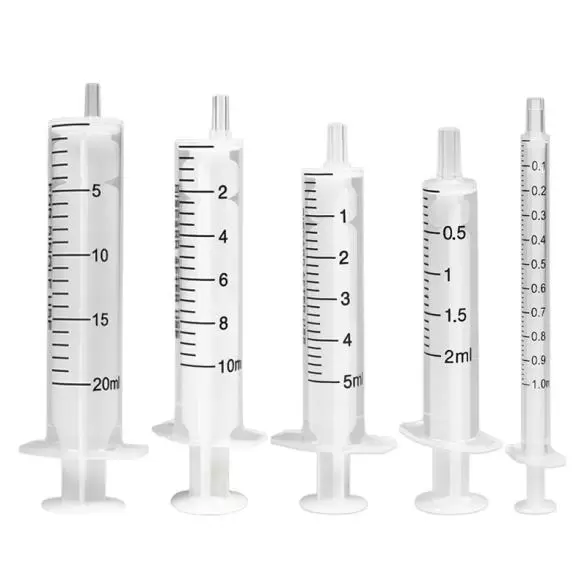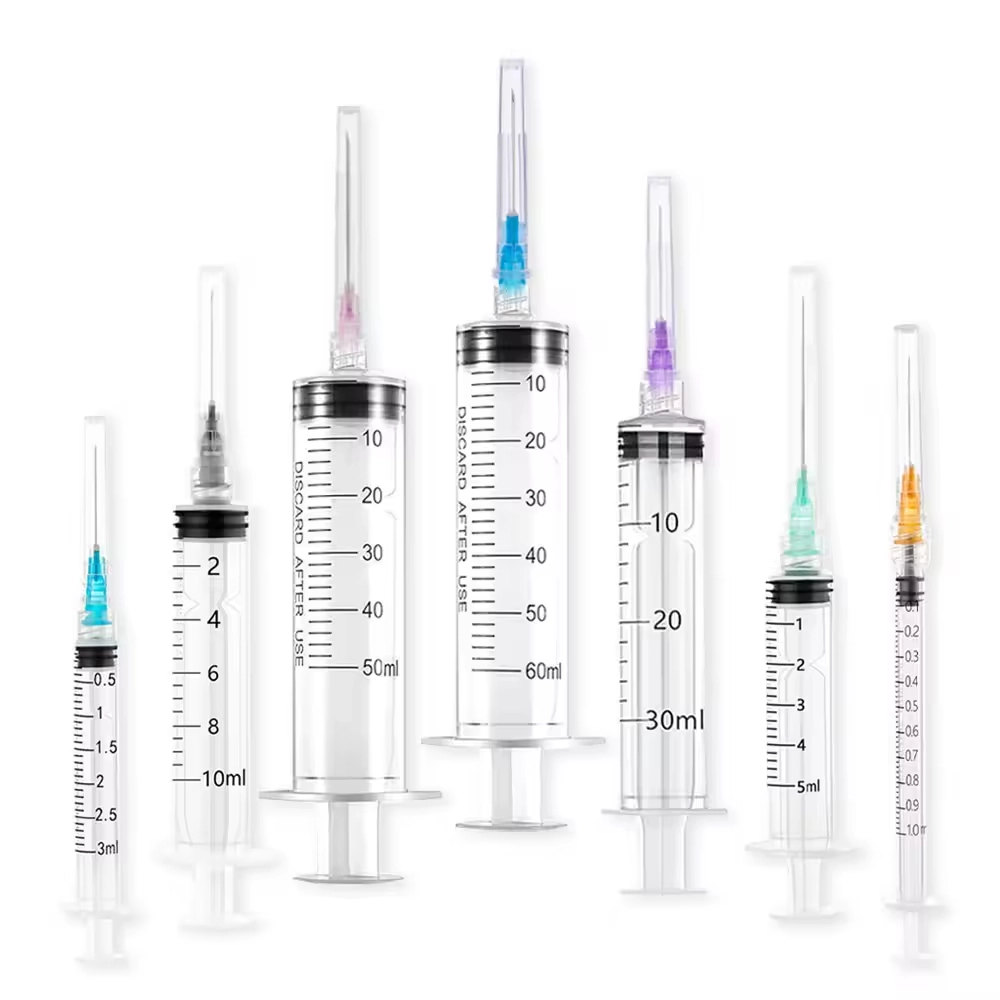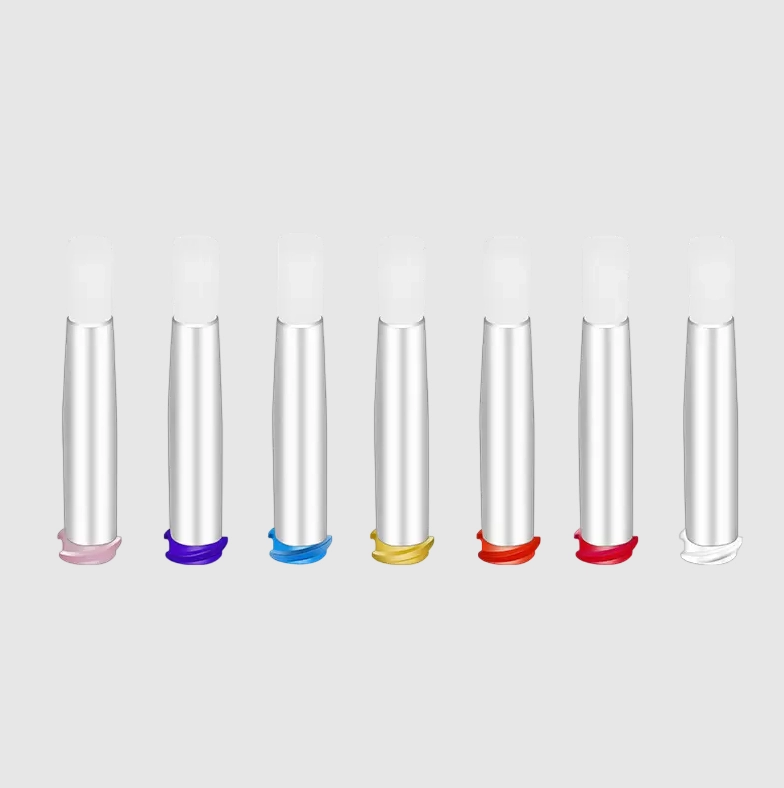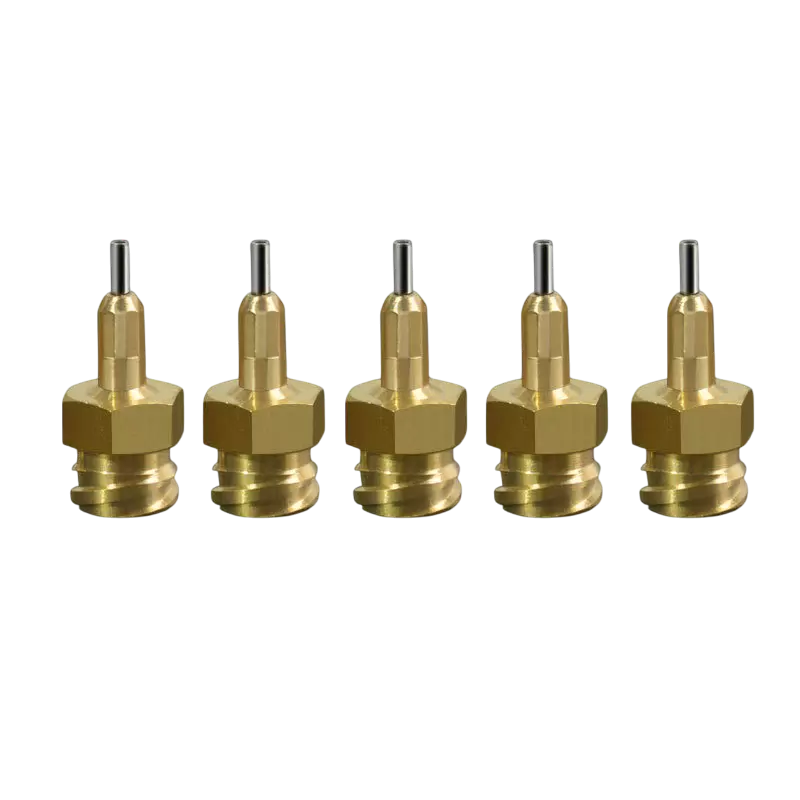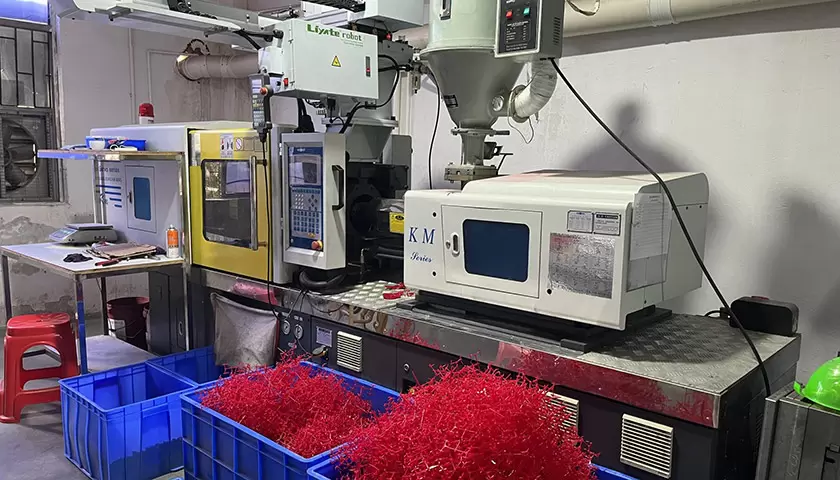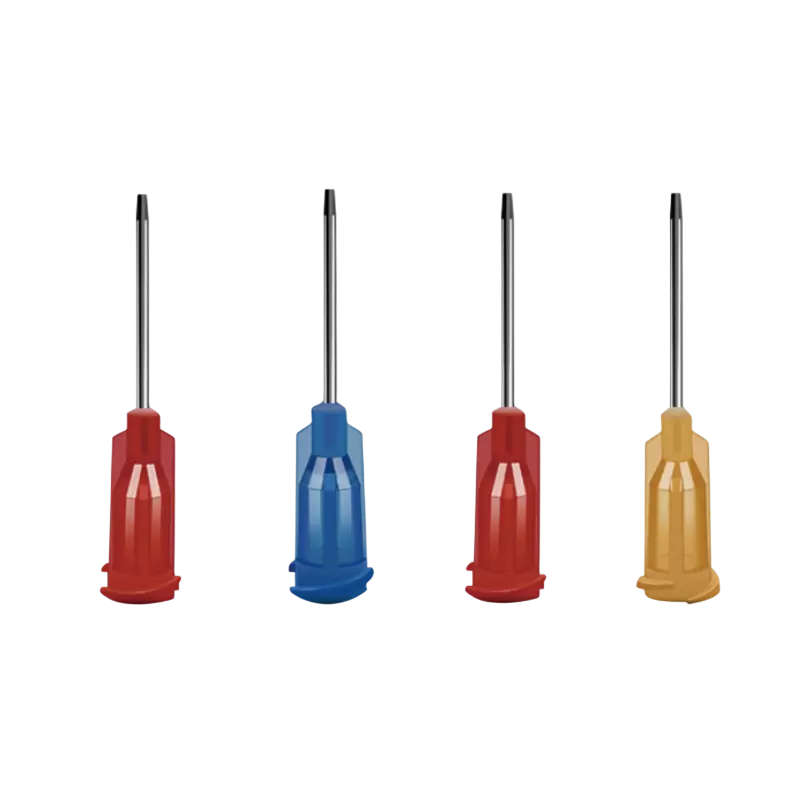Home > News > Industry News > From Size to Finish: Understanding the Specs of Contriu's Stainless Steel Glue Needles
From Size to Finish: Understanding the Specs of Contriu's Stainless Steel Glue Needles
When it comes to precision adhesive dispensing, every detail matters—from the viscosity of the adhesive to the exact dimensions of the dispensing tool. For many industries, the stainless steel glue needle is a cornerstone of accurate, reliable application. Whether you’re assembling microelectronics, manufacturing medical devices, or working in an R&D laboratory, understanding the specifications of your dispensing needle can dramatically improve efficiency, safety, and results.
Contriu has earned a reputation for manufacturing high-quality dispensing tools designed for professional use. In this article, we’ll break down the key specifications of stainless steel glue needles—including size, gauge, length, finish, and tip style—so you can make informed decisions about your adhesive dispensing needs.
For detailed options and specifications, you can explore Contriu’s stainless steel glue needles here.
Why Specifications Matter
In adhesive dispensing, precision is non-negotiable. Even minor inconsistencies can lead to weak bonds, contamination, wasted materials, or compromised safety. Specifications such as needle size, finish quality, and compatibility affect not only the flow of adhesive but also the long-term reliability of the bonded parts.
For industries like electronics and healthcare, the difference between a 23-gauge and a 27-gauge needle could mean success or failure. Similarly, a poorly finished tip can cause drips, clogging, or irregular adhesive lines.
1. Needle Size and Gauge
The gauge of a glue needle refers to the inner diameter of the stainless steel tubing. Smaller gauges (higher numbers) mean finer internal diameters, while larger gauges (lower numbers) have wider openings.
Fine gauge (27–30G): Ideal for micro-dispensing in electronics or medical applications.
Medium gauge (21–25G): Suitable for general-purpose adhesives and industrial assembly.
Wide gauge (14–20G): Best for viscous adhesives like silicones, polyurethanes, and epoxies.
Matching gauge to adhesive viscosity is critical. Using too fine a needle with thick adhesive often leads to clogs, while using too wide a needle with thin adhesive may cause dripping or excessive flow.
2. Needle Length
Glue needles come in varying lengths, typically ranging from 0.5 inches to 2 inches or more. The choice depends on the application environment:
Short needles: Provide stability and are less likely to bend, making them ideal for precision assembly.
Long needles: Help reach into deep cavities, seams, or hard-to-access areas in automotive or aerospace assemblies.
Some applications even call for custom lengths. For example, in lab testing where adhesives must be applied in narrow tubes, extended-length glue needles become indispensable.
3. Needle Finish
The finish of a stainless steel glue needle impacts both durability and dispensing performance.
Polished finish: Reduces internal friction, allowing adhesives to flow smoothly and consistently.
Deburred tips: Prevent accidental scratching of substrates and ensure clean dispensing lines.
Electropolished surfaces: Provide superior corrosion resistance and smoother adhesive delivery, particularly useful in medical or high-purity environments.
A smooth, clean finish minimizes clogging and adhesive buildup, extending the lifespan of the needle.
4. Tip Styles
Different applications call for different tip configurations:
Straight tips: The most common, used for direct dispensing.
Tapered tips: Reduce back pressure and clogging, especially useful for viscous adhesives.
Bent tips (angled 45° or 90°): Allow adhesive application in confined or angled spaces.
Custom tips: Designed for specialized applications requiring unique dispensing patterns.
Choosing the right tip style ensures accurate placement and minimizes material waste.
5. Materials and Compatibility
Contriu’s glue needles are manufactured from stainless steel, known for its durability, corrosion resistance, and compatibility with a wide range of adhesives and solvents. Paired with polypropylene hubs (luer lock or luer slip), these needles securely fit into dispensing systems without leaks.
Compatibility is crucial—some adhesives are chemically aggressive and may corrode lower-quality metals. Stainless steel ensures reliability even with reactive adhesives like cyanoacrylates or anaerobics.
6. System Integration
Specifications also determine how well a glue needle integrates with dispensing systems. Contriu designs its stainless steel needles to be compatible with:
Manual syringes for small-scale or lab use.
Pneumatic dispensers for higher-volume industrial production.
Automated dispensing robots in advanced manufacturing environments.
Proper integration reduces downtime and ensures consistent adhesive patterns.
Applications of Contriu’s Stainless Steel Glue Needles
Electronics: Solder paste, flux, and epoxy application on PCBs.
Medical Devices: Bonding and sealing of small, precise components under sterile conditions.
Automotive: Sealant application in engine assemblies and bodywork.
Laboratories: Research experiments requiring micro-volume adhesive dispensing.
Each of these applications benefits from carefully chosen specifications tailored to adhesive type and environment.
Best Practices for Selecting Glue Needles
Match gauge to adhesive viscosity.
Choose length based on accessibility requirements.
Opt for tapered or bent tips when dealing with viscous adhesives or confined spaces.
Prioritize polished finishes to minimize residue and extend tool life.
Verify compatibility with dispensing systems and adhesives used.
Maintenance & Care
Even the best needles require proper maintenance:
Clean immediately after use with compatible solvents.
Inspect regularly for bends, clogs, or corrosion.
Replace damaged tips to avoid inconsistent dispensing.
Store properly in dry, capped containers to prevent contamination.
Following these practices ensures stainless steel glue needles remain reliable and efficient.
External Insights & Resources
If you want to explore more about adhesive dispensing, these resources provide helpful insights:
Adhesive and Sealant Council – A global hub for adhesive technology and best practices.
Engineering Toolbox – Useful charts on fluid dynamics and viscosity relevant to adhesive flow.
Conclusion
From size and gauge to finish and tip style, every specification of a stainless steel glue needle impacts performance in adhesive dispensing. By understanding these details, manufacturers and researchers can select the perfect needle for their application, improving efficiency, safety, and end-product quality.
Contriu offers a wide range of precision-engineered dispensing needles designed to meet diverse industry needs. To learn more about their product line, visit Contriu stainless steel glue needles.

